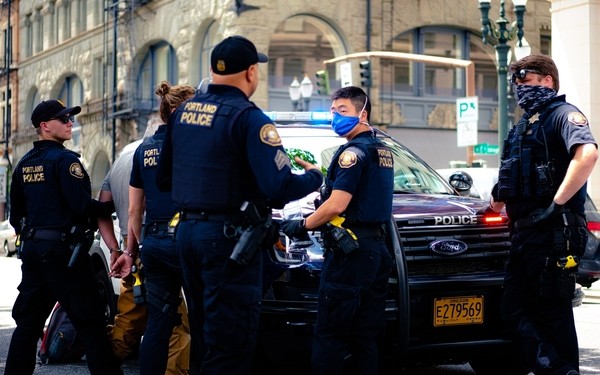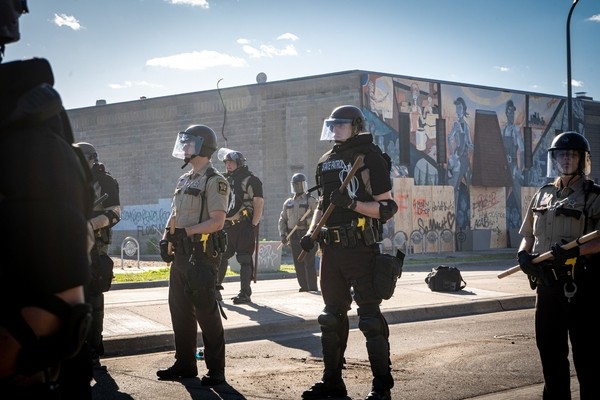COVID-19 has changed just about everything, and law enforcement certainly isn’t exempt. Police departments across the country have adjusted their practices with public health and officer safety in mind — some doing better than others. Here are three ways COVID-19 has changed law enforcement practices:
Extra Precautions for Officer Safety
Police officers, EMS personnel, and other first responders can’t exactly work from home or consistently social distance, so they need to take extra precautions to protect themselves from COVID-19. They’re encouraged and in some cities required to wear PPE such as face masks, goggles, and gloves. Some law enforcement agencies have also made schedule changes to prevent outbreaks within their departments.
After 9 out of their 162 officers tested positive for COVID, Santa Rosa Police Chief Rainer Navarro devised a new work schedule to slow the spread. Now officers work 12.5-hour shifts for 3-4 days, take 3-4 days off, and repeat. They then stay home for 2 weeks to monitor any signs of symptoms before returning to work. Fewer shift changes and smart rotations ensure that they have the proper coverage while prioritizing officer safety.
Scheduling and managing a workforce with these concerns in mind isn’t easily done on an Excel spreadsheet. Law enforcement scheduling software can significantly help supervisors make the appropriate adjustments to their staff schedule and track things like overtime and labor costs. This software solution also gives administrators the ability to track officer training and certifications and dispatch the right officers with the proper qualifications to certain calls.
Emphasis on Community Protection

COVID-19 outbreaks in jails, prisons, and ICE detentions centers have led many advocates and officials to call for the reduction of incarcerated populations and new custodial arrests. To address these and other issues, the Center for American Progress published its own recommendations for policing during the pandemic, which includes:
- Minimizing the number of police stops and custodial arrests — Officers should focus on the most serious cases and only take someone into custody if they are a threat to public safety. Arrests for nonviolent crimes should be delayed.
- Limit in-person response to calls — Law enforcement agencies should encourage the use of online portals and non-emergency lines to report non-urgent complaints and only respond in-person when necessary.
- Focus on preventing domestic violence — With more people at home, domestic violence is on the rise. Officers need to receive the proper training to deal with domestic violence in this context.
These and other recommendations serve to protect the health and safety of law enforcement officers and community members. This particular emphasis on community care and safety is especially significant given the recent social unrest surrounding police brutality.
Reimagining Public Safety

Law enforcement agencies have an opportunity to begin rebuilding legitimacy and trust with their communities by how they respond and adapt their practices to COVID-19. They can do this by following CDC and community recommendations and choosing a compassionate, rather than militarized, approach. Address the societal roots of crime and provide more community resources, rather than doubling down on enforcement and punishment.
Unfortunately, some police departments have been missing the mark. Denver police continue to regularly sweep homeless encampments, even though the CDC says doing so increases the risk of spreading the virus. Many law enforcement agencies have also begun enforcing evictions throughout the country. Displacing and evicting people during a pandemic is not at all good for public health, let alone community trust.
This lack of change in policing practices has led many activists to call for a reimagining of public safety altogether. Through sustained protests and local outreach, some communities have introduced broader policing changes.
Austin's council has taken note of all this public input, they unanimously backed 5 measures for police reform and racial justice back in June which set the stage for the budget changes being discussed now: https://t.co/qXWvsWfMzv
— Alyssa Goard (@AlyssaMGoard) August 12, 2020

